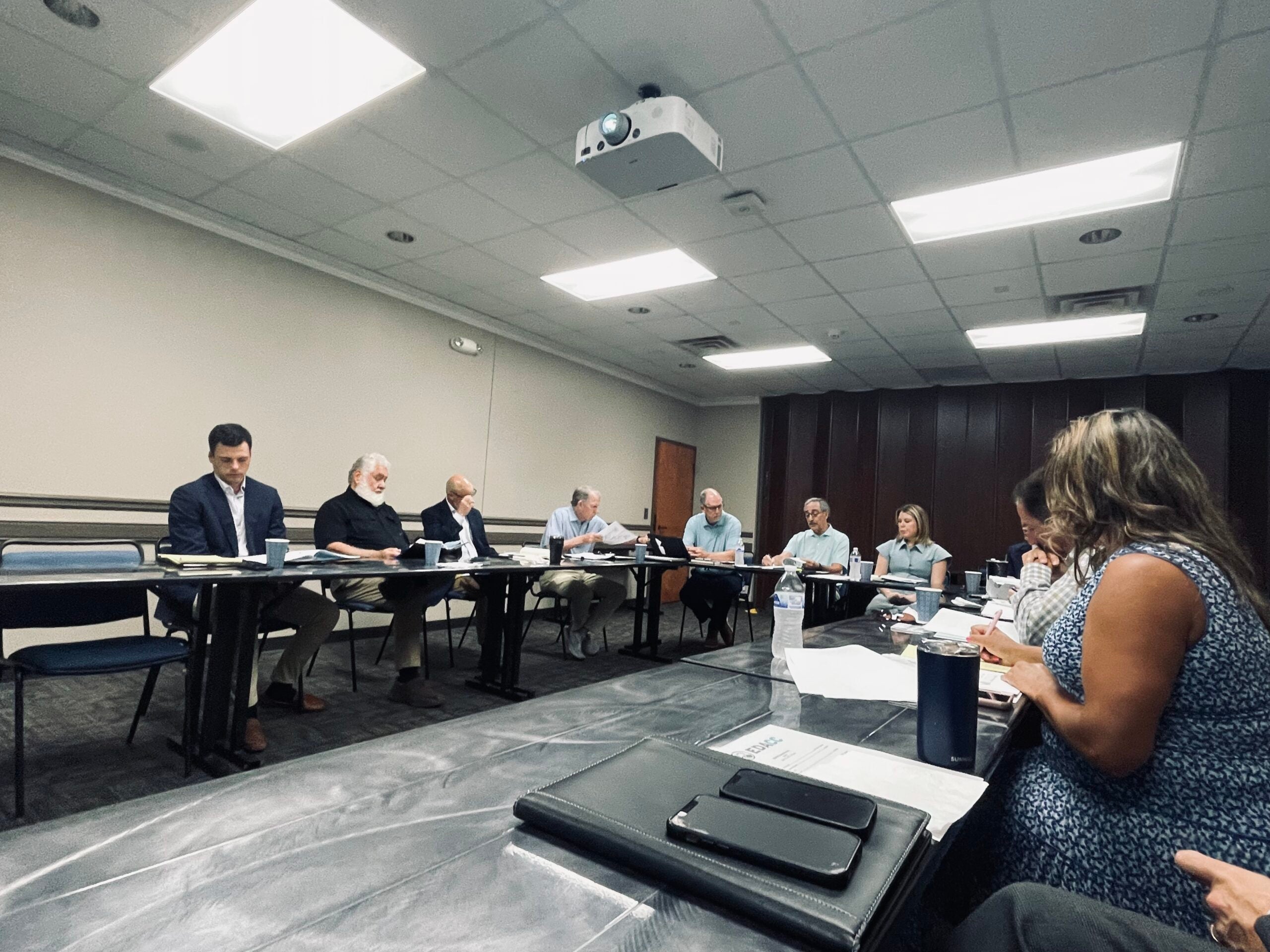The Economic Development Authority of Columbia County (EDACC) touched on the expansion of White Oak Park during its monthly meeting, Wednesday morning. Chairman Rick Evans mentioned that the Authority is working to get approval on talking points to present complex information in a streamlined manner for the inquiring public regarding the development, the rezoning for which the Board of Commissioners approved last month.
“To me, one of the biggest things on our plate right now is Q and A for what’s going on at White Oak,” said Evans, before member Jim Cox asked about concerns about excessive water use by industries that will set up at the park.
Executive director Cheney Eldridge made note that while EDACC can’t yet definitely say how much water would be used at the site, as no users have been identified, it is working with the county to mitigate its impact. That, should any companies use a lot of water, the water system would be engineered such as to offset the impact.
“It’s a complicated answer, but the simple way to say it is that there are some users that do use a lot of water, and there are some users that use almost no water at all, just like flushing toilets at an office building,” said Eldridge. “And there are ways that even if you have a large water user, you can ensure, by the way that you design that water utility, that it’s not pulling from residential uses. And a lot of communities that are having problems, their water utility did not design it in that proper way.”
Eldridge also announced that she had been selected to be on the search committee to find a new president for Augusta Technical College (ATC). The committee would not vote for the new president, but meet and narrow down a slate of applicants, the process of which would begin in two days. The college’s board of directors aims to vote in its next president in early October, she said.
Board member Kerry Bridges, a region executive with Georgia Power, mentioned that the company and the Georgia Public Service Commission have reached a tentative agreement to freeze base rates for the next three years.
“The prior three years, we’ve had increases each year, keeping up with the inflation and interest rates now, sort of a subsiding era of interest rates and inflation,” said Bridges, noting that some of Georgia Power’s peers have been requesting customers to use less energy to avoid “rolling blackouts” amid the hot weather. Georgia Power, however, is adding more than 50,000 customers a year. “We think we can hold base rates steady in Georgia. Georgia is growing, and so that that growth as a whole will help offset some of the need for some of those rate increases.”
Skyler Q. Andrews is a staff reporter covering business for The Augusta Press. Reach him at skyler@theaugustapress.com.









